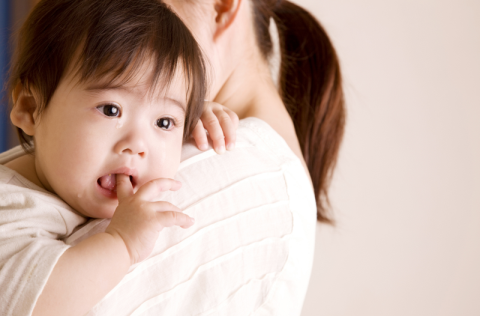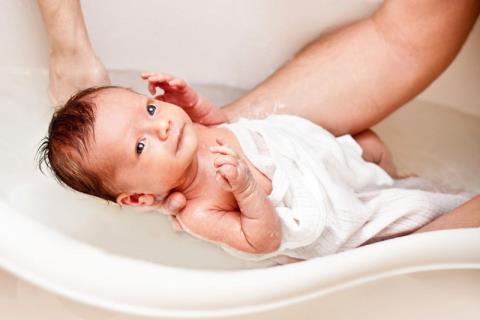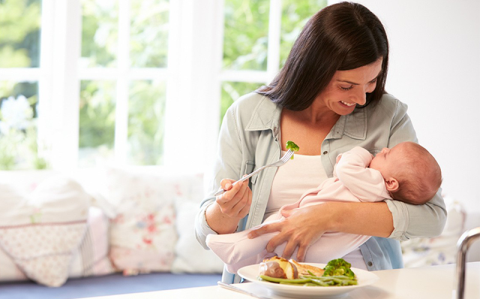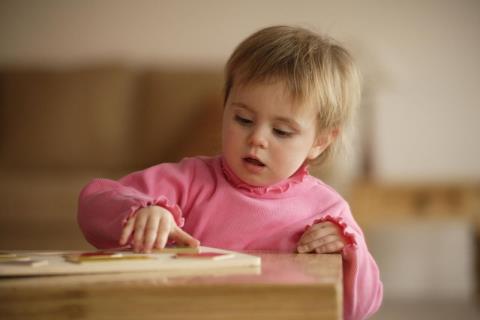Children taking antibiotics have diarrhea what to do? This is a question that many mothers ask when taking care of their children. Let's find answers to questions through the article below!
Antibiotics are one of the most commonly used drugs to treat bacterial infections. However, the use of antibiotics can cause unwanted side effects and diarrhea is one of the side effects when using antibiotics, especially in young children. So why do children have diarrhea when taking antibiotics and children taking antibiotics have diarrhea what to do? Let's find out in the article below!
Why do children get diarrhea when taking antibiotics?
In the intestinal tract, there is always a population of microorganisms including beneficial bacteria and harmful bacteria. In particular, the beneficial bacteria often have the function of maintaining the microflora at a balanced level, in order to enhance digestion, absorb nutrients, eliminate toxic substances, and inhibit the effects of pathogenic bacteria.
Therefore, when antibiotics enter the body, even at the lowest concentration, they can kill or inhibit the growth of bacteria. Antibiotics will also have many different groups, and each group has brand-name drugs that kill different bacteria.
Why do children get diarrhea when taking antibiotics?
Usually antibiotics for children are usually produced in the form of tablets, powder or injection to treat infections and infections. Once the infection is under control and the antibiotics children usually take are in tablet form. Depending on the age and location, parents use different drugs for their children.
According to experts, any antibiotic can cause an imbalance in the intestinal microflora, especially broad-spectrum antibiotics. At this time, antibiotics that kill many types of beneficial bacteria are also destroyed by antibiotics, disrupting the inherent balance causing intestinal dysbacteriosis. Along with that, it will help promote the growth of existing or newly introduced pathogenic bacteria, thereby leading to diarrhea in children taking antibiotics.
What are the common symptoms of children with antibiotic-associated diarrhea?
After the child uses antibiotics about 2-9 days a week, the child will have symptoms of abdominal bloating, abdominal pain and mild abdominal distension. After that, it will lead to some of the following symptoms:
- Children have abdominal pain, diarrhea many times a day, can be up to 15-20 times / day
- The stool is loose with mucus or the stool is green, yellow, foamy, and contains a lot of undigested food, sometimes blood and mucus.
- Children have to push every time they have a bowel movement, the child's anal area may be red due to acidic stools.
- When harmful bacteria multiply too quickly, it can cause symptoms of colitis or pseudomembranous colitis such as: High fever, nausea and vomiting, abdominal cramps, repeated diarrhea, loose stools purulent blood.

Symptoms of children with diarrhea due to antibiotic use are often
In the case of mild diarrhea, symptoms usually resolve on their own within a few days to 2 weeks after stopping antibiotics. However, if diarrhea persists for a long time, it can cause many serious consequences such as metabolic disorders, dehydration and electrolyte disturbances, rapid weight loss and malnutrition.
Moreover, if the diarrhea lasts for a long time, it can cause toxic megacolon with enlarged colon manifestations accompanied by inflammation, stagnation of toxins in the colon, absorption through the intestinal wall into the blood. Thereby causing toxicity throughout the body with symptoms such as fever, abdominal pain, perforation of the colon, etc.
Children taking antibiotics have diarrhea what to do?
So the most concerned question is still what to do when children take antibiotics with diarrhea? For mild cases of diarrhea, symptoms usually resolve on their own within a few days to 2 weeks after stopping antibiotics.
In cases of severe diarrhea, the mother needs to stop giving the child antibiotics as soon as there is diarrhea and combine with rehydration, electrolyte replacement, and acid-base balance. Mothers should give children using oresol or hydrite tablets to rehydrate the child. You need to pay attention to prepare the rehydration solution according to the direction of use, only mix 1 pack or 1 tablet at a time with the guided amount of cooked water, do not split the package or tablet. The rehydration for children should be maintained until the child has less than 3 thick stools/day and the rehydration solution has been mixed, if after 24 hours, it is still not drinking, it is best for the mother to throw it away. For children with pseudomembranous colitis , the antibiotic of choice is metronidazole or vancomycin.
Children taking antibiotics have diarrhea what to do?
In case of severe dysbacteriosis or cannot stop antibiotics, the baby needs to be supported with additional treatment with microbial products containing prebiotics and probiotics to help rebalance the intestinal bacteria strains according to the instructions of the doctors. doctor. In case, if you have to combine with microbiological products, you should consult with your doctor.
In addition, you can change your diet to reduce the symptoms of diarrhea. Eat smaller meals throughout the day, eating soft, easy-to-digest foods like yogurt, potatoes, bananas, and rice. At the same time, avoid giving children too much fiber, citrus juices and strong fermented substances to ensure adequate nutrition for children.
Hopefully, the above article will help mothers know the answer to the question of what to do when children take antibiotics with diarrhea. From there, know how to take care of children in the best way!







